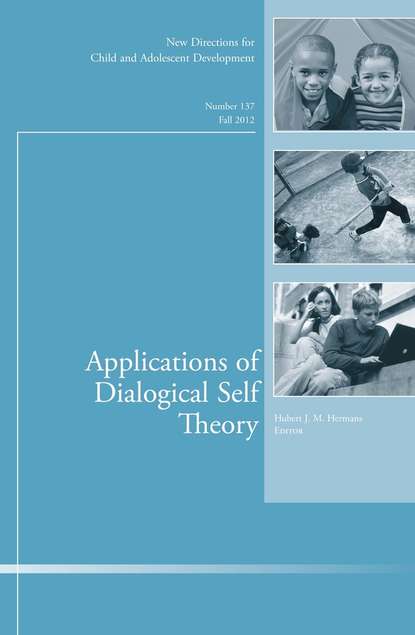Книга "Применение теории диалогического себя. Новые направления в развитии детей и подростков" является 137-м томом серии научно-исследовательских работ, посвященных проблемам развития детей и подростков. В книге рассматривается теория диалогического себя, основанная на предположении того, что личность функционирует как "общество разума". Авторы объясняют, что личность не просто участвует в окружающем обществе, но представляет собой мини-общество, которое является частью общества в целом. Они подробно описывают теорию, исследуют происхождение диалогического себя в процессе развития и обсуждают развитие идентичности у подростков, воспитывающихся в мультикультурном обществе. Также в книге рассматривается интересный пример социального движения в Индии, где индивидуальные и коллективные голоса объединяются в национальном протесте. Книга представляет собой ценный источник информации для всех, кто интересуется проблемами развития личности в современном мире.
In a world increasingly connected, a dialogic self is not merely possible but also essential. People are ever closer together, while also faced with disparities and even irresolvable differences. A dearth of dialogue among individuals, cultures, and groups is paralleled by the need to nurture the dialogic potential within each self. Drawing from this idea, the contributors present and challenge a Dialogic Self Theory that posits the self as a community of minds. Rather than merely reacting or participating in the surrounding society, the self acts as a miniature society that, at the very least, is its own microcosm. The essays provided: unfold the theory thoroughly delve into the developmental beginnings of the dialogic self elaborate the evolving identities of adolescents raised in ever more diverse societies and provide the striking case study of a national protest in India, during which individual and communal voices blend to ultimately secure a common objective For this volume, the editors have pulled together experts spanning child development, psychology, history, sociology, and philosophy. Volume 137 continues the initiative of presenting cutting-edge topics of research and conceptions in youth development to a broad readership.
Электронная Книга «Applications of Dialogical Self Theory. New Directions for Child and Adolescent Development, Number 137» написана автором Hubert Hermans J. в году.
Минимальный возраст читателя: 0
Язык: Английский
ISBN: 9781118524862
Описание книги от Hubert Hermans J.
In an increasingly interconnected world, a dialogical self is not only possible but even necessary. People are closer together than ever, yet they are confronted with apparent and sometimes even insurmountable differences. While there is a need of increased dialogue between individuals, groups, and cultures, it is equally important to develop of dialogical potentials within the self of the individual person. Elaborating on these concerns, the authors present and discuss a Dialogical Self Theory based on the assumption that the self functions as a society of mind. The self is not simply participating in a “surrounding” society, but functions itself as a mini-society, which is, at the same time, part of the society at large. The authors: Present the theory in detail Explore the developmental origins of the dialogical self Elaborate on the identity development of adolescents growing up in multicultural societies Discuss a striking example of a social movement in India, where individual and collective voices merge in a nationwide protest. This is the 137th volume in this series. Its mission is to provide scientific and scholarly presentations on cutting edge issues and concepts in child and adolescent development. Each volume focuses on a specific new direction or research topic and is edited by experts on that topic.



















